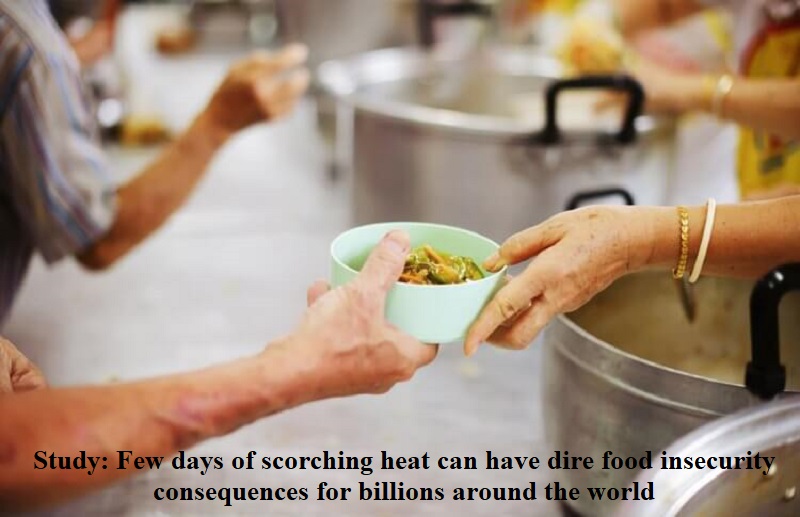
Amidst the backdrop of escalating global temperatures, a recent study has revealed a worrisome reality: just a few days of scorching heat can lead to dire consequences of food insecurity for billions of individuals across the globe, according to media reports.
Published in the journal Nature Human Behaviour, the study conducted an analysis spanning 150 countries, with a particular focus on those situated in tropical and subtropical regions. This research illuminated the vulnerability of populations in the face of heatwaves. The analysis indicated that a mere week of intense heat could trigger hunger and impact millions of men, women, and children.
The study specifically emphasized that even a single week of extreme temperatures in places like India could result in an additional eight million people facing severe food insecurity.
While conventional assessments of heat’s influence on food availability have primarily centered on long-term reductions in crop yields, often extending over months or years, this study unveiled a distinct aspect of the issue. It demonstrated that the consequences of extreme heat can be felt almost immediately, especially when intertwined with income.
Lead author of the study from Oxford University, Carolin Kroeger, elucidated, “If it gets hot today, there might be food insecurity within just a few days because people can’t work, which means they can’t earn income and afford to buy food.”
The impact of heat-induced food insecurity is most pronounced in professions where earnings are tightly linked to productivity. Agricultural work and piece-rate jobs are prime examples.
An illustration from the study presented the case of female brick carriers who are compensated based on the number of bricks they transport daily. When elevated temperatures force them to carry fewer bricks, their income can plummet by up to 50 percent.
While the loss of income due to extreme heat is a critical concern, the study also cast light on other challenges exacerbated by rising temperatures. Beyond disruptions in supply chains and spikes in prices, researchers discovered that essential nutrients in staple crops and legumes are also compromised by higher temperatures. This adds to the complexity of the food security crisis.

Post Your Comments